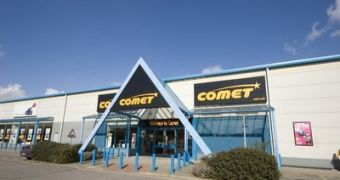Today, Microsoft announced that it has filed a suit against Comet Group PLC for allegedly creating and selling counterfeit Windows Vista and Windows XP CDs.
The Redmond-based software giant claims that the UK high street tech retailer has created a number of over 94,000 sets of counterfeit Windows Vista and Windows XP recovery CDs.
Moreover, the company is accused of selling these CDs to its users who had purchased PCs and laptops that were running under the Windows platform right from the start.
“As detailed in the complaint filed today, Comet produced and sold thousands of counterfeit Windows CDs to unsuspecting customers in the United Kingdom,” said David Finn, associate general counsel, Worldwide Anti-Piracy and Anti-Counterfeiting at Microsoft.
“Comet’s actions were unfair to customers. We expect better from retailers of Microsoft products — and our customers deserve better, too.”
Comet had allegedly created these counterfeit CDs in a factory in Hampshire. The products were then being sold to customers all around the UK via the company’s own retail outlets.
Comet is one of the two big high street tech retailers in the UK, currently being owned by the French retail company Kesa Electricals PLC. However, Microsoft notes that the company is being purchased by private equity firm OpCapita LLP, and that the transaction is expected to be closed later this year.
If the allegations prove real, this could easily turn into a straightforward case of software piracy. What’s highly surprising is the fact that one of the largest retailers in the UK is involved.
“With an emphasis on education, engineering and enforcement, Microsoft seeks to protect its customers from counterfeiting and piracy — and ensure people get what they pay for,” the software giant notes in a press release.
“If customers ever question the legitimacy of their software, be it a shrink-wrapped product or recovery media, they are advised to visit http://www.howtotell.com to learn more and, if they have any doubt, report the suspicious software to Microsoft.”

 14 DAY TRIAL //
14 DAY TRIAL //